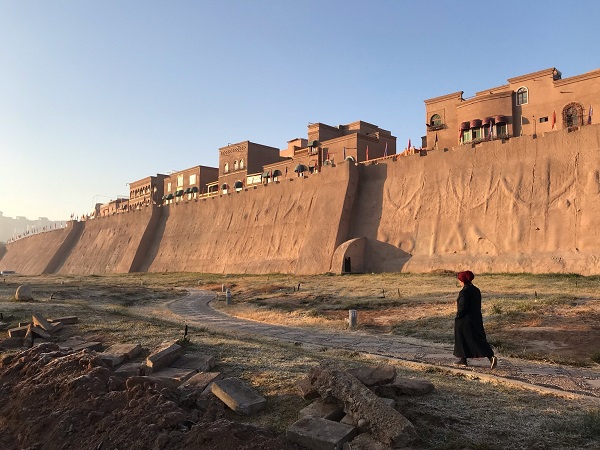United Nations, (Asian independent) A new UN report has revealed that the Chinese government might have “committed crimes against humanity” in the Xinjiang region, home to the ethnic Uyghur Muslims.
Released on Wednesday, the report which was commissioned by the UN’s Office of the High Commissioner on Human Rights, said prisoners had been subjected to “patterns of ill-treatment” which included “incidents of sexual and gender-based violence”.
Others, the report said, faced forced medical treatment and “discriminatory enforcement of family planning and birth control policies”, the BBC reported.
Despite China’s repeated denials, investigators were quoted in the report as saying that they uncovered “credible evidence” of torture possibly amounting to “crimes against humanity”.
They accused China of using vague national security laws to clamp down on the rights of minorities and establishing “systems of arbitrary detention”.
The UN report recommended that China immediately takes steps to release “all individuals arbitrarily deprived of their liberty” and suggested that some of Beijing’s actions could amount to the “commission of international crimes, including crimes against humanity”.
In response, China,which saw the report in advance, again rejected the allegations of abuse and argued that the camps are a tool to fight terrorism, reports the BBC.
Its delegation to the UN human rights council in Geneva rejected the findings of the report, which it said “smeared and slandered China” and interfered in the country’s internal affairs.
“This so-called ‘assessment’ is a politicized document that ignores the facts, and fully exposes the intention of the US, Western countries and anti-China forces to use human rights as a political tool,” the delegation said in a lengthy statement.
Xinjiang is China’s largest region, covering one-sixth of its total territory, with a population of 25.85 million.
As it shares external borders with Afghanistan, India, Kazakhstan, Kyrgyzstan, Mongolia, Pakistan, Russia and Tajikistan, the region also provides important routes and access to Central Asian markets and beyond.
There are about 12 million Uyghurs, mostly Muslim, living in Xinjiang.








